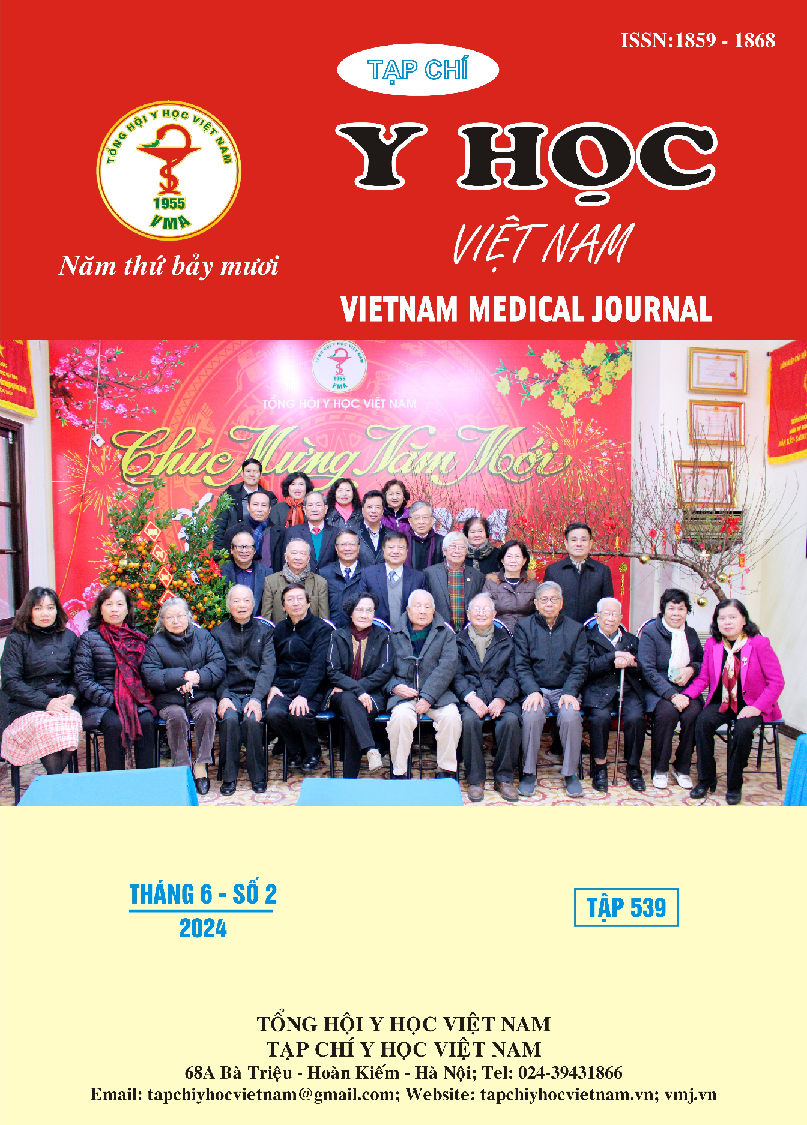VALIDATION OF THE VIETNAMESE VERSION OF THE GENDERISM AND TRANSPHOBIA SCALES - REVISED - SHORT FORM (GTS-R-SF)
Main Article Content
Abstract
The growing transgender community in Vietnam presents many problems for society, and many people still have negative attitudes toward this minority group. Currently, in Vietnam, there is no reliable scale to assess community attitudes towards transgender people. Therefore, we validated the Genderism and Transphobia Scales Short Form (GTS-R-SF) on 197 students studying at the Hanoi Medical University. In addition, we conducted a multivariate logistic regression analysis to evaluate factors related to stigma and violent attitudes toward transgender people. The results show that the GTS-R-SF scale has high internal consistency with Cronbach's alpha coefficient of 0.925. Confirmatory factor analysis (CFA) indicated the sample had an acceptable fit to the two-factor model. Reliability and test reliability analysis showed that the internal consistency of the GTS-R-SF and the two subfactors were good. Multivariate logistic regression analysis demonstrated that being male and having friends from the LGBT community are related to gender discrimination and violent tendencies against transgender people. This research is necessary to ensure equality for the LGBT community in general and transgender people in particular
Article Details
Keywords
LGBT, transgender, medical students’ attitude.
References
2. L. Mizock, T. D. Woodrum, J. Riley, E. Sotilleo, N. Yuen, and A. Ormerod, “Coping with transphobia in employment: Strategies used by transgender and gender diverse people in the United States,” International Journal of Transgenderism, vol. 18, pp. 1–13, Apr. 2017, doi: 10.1080/15532739.2017.1304313.
3. S. E. Walch, K. A. Sinkkanen, E. M. Swain, J. Francisco, C. A. Breaux, and M. D. Sjoberg, “Using Intergroup Contact Theory to Reduce Stigma Against Transgender Individuals: Impact of a Transgender Speaker Panel Presentation,” J Applied Social Pyschol, vol. 42, no. 10, pp. 2583–2605, Oct. 2012, doi: 10.1111/j.1559-1816.2012.00955.x.
4. “Measuring Explicit Prejudice and Transphobia in Nursing Students and Professionals - PMC.” Accessed: Jan. 25, 2024. [Online]. Available: https://www.ncbi.nlm.nih.gov/ pmc/articles/PMC8608125/
5. E. A. Tebbe, B. Moradi, and E. Ege, “Revised and abbreviated forms of the Genderism and Transphobia Scale: Tools for assessing anti-trans* prejudice.,” Journal of Counseling Psychology, vol. 61, no. 4, pp. 581–592, 2014, doi: 10.1037/cou0000043.
6. D. Epstein, S. O`Flynn, and D. Telford, Silenced sexualities in schools and universities. 2003.
7. M. V. Carrera-Fernández, M. Lameiras-Fernández, Y. Rodríguez-Castro, and P. Vallejo-Medina, “Spanish Adolescents’ Attitudes toward Transpeople: Proposal and Validation of a Short Form of the Genderism and Transphobia Scale,” The Journal of Sex Research, vol. 51, no. 6, pp. 654–666, Aug. 2014, doi: 10.1080/00224499.2013.773577.
8. H. C. Karpel et al., “Assessing Medical Students’ Attitudes and Knowledge Regarding LGBTQ Health Needs Across the United States,” J Prim Care Community Health, vol. 14, p. 21501319231186729, 2023, doi: 10.1177/ 21501319231186729.


